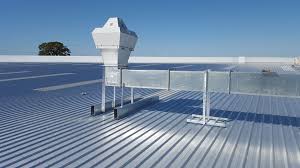
When you install an air conditioning system in your home, office or an apartment block, efficiency is usually one of the most important factors when choosing a style, and brand. So, what does it mean to have an inefficient air conditioning system? Over time it will be very costly. Here are the finer details, so you understand.
Cheap Versus SEER Rating
Generally, cheaper systems have lower efficiency, meaning the energy costs to run it will be far higher. Although you might be saving upfront costs, the costs over time will most likely outweigh the saving substantially. When purchasing a more expensive system with a higher SEER rating means that, over time, you will also conserve far more energy, costing you much less.
The Seasonal Energy Efficiency Ratio is the description of the cooling capacity of an air conditioning system. It’s a technical term that gives to the ratio for the rate of cooling produced divided by the electricity amount used. When it comes to the crunch, the higher the SEER rating means the system will be more efficient.
How To Choose A New HVAC
Because your heating and cooling systems (or HVAC) use more energy than any of the other appliances in your home, you need to ensure that the one you choose is the most efficient you can afford. When upgrading to a new system, you should take notice of the SEER rating on each of the different HVAC system and work out which one is the most efficient for where you want to install it.
The EPA standards currently require a minimum SEER rating of 13 for residential air conditioners installed or built after January 1, 2015. Systems that are older than that will typically have a SEER rating of lower than 10. Most units will show a sticker with the energy rating somewhere on, or near the condensing unit.
Save Money By Upgrading
Although your current system might only be ten years old, it may be worth your while replacing the entire system to lower your energy bills. Most systems that old will have a far lower SEER rating and will be costing a lot more to run. The amount you will spend ion a new highly rated air conditioning unit will pay for itself in savings in the next ten years more than you think. Changing from a unit with a SEER rating of 9 to a SEER rating of 13 will save you almost 30% on your energy consumption. That could mean hundreds of extra dollars in your pocket every year. If you want to know more about how much you can save by upgrading, you can visit the Department of Energy website, where they have an online energy-efficiency calculator.
Planning out the installation fo the right HVAC system for your home is important, not just for comfort but to save money as well. Contacting a professional will ensure you get the best SEER rating on your new system you can afford.
